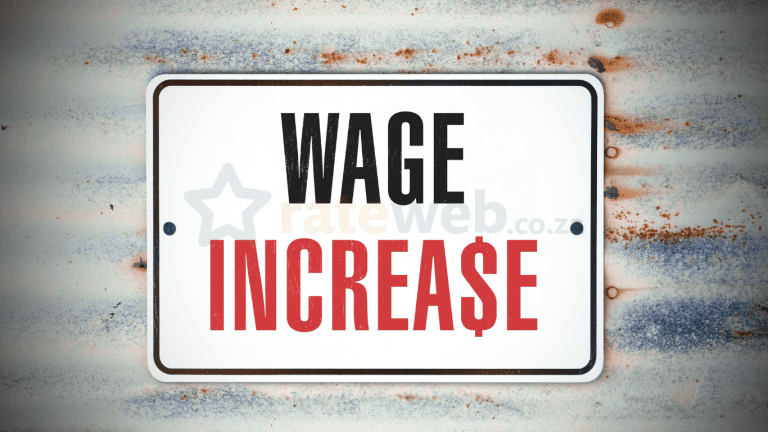Recent early economic data for January 2023 suggests that South Africa may successfully dodge a technical recession, despite ongoing challenges, according to economists at the Bureau for Economic Research (BER). This week saw the release of several industry data reports, including mining, manufacturing, retail, and wholesale trade figures for the first month of the year.
- Early economic data for January 2023 suggests that South Africa may avoid a technical recession despite ongoing challenges, such as load shedding, which has significantly impacted the economy.
- While year-on-year declines in production across various sectors were anticipated, month-on-month data from industries like mining, manufacturing, and retail provided an unexpected, positive surprise, offering hope for the economy.
- Major banks and financial groups have acknowledged the impact of load shedding on the economy, with growth projections for 2023 being reduced significantly. Although none predict an outright recession, all estimates are below 1%, highlighting the precarious situation South Africa faces.
The BER notes that while the year-on-year declines across most sectors were anticipated – due to the severity of load shedding that began in 2023 compared to 2022 – month-on-month growth in some industries provided an unexpected but welcome surprise. This positive data strengthens the belief that the South African economy can avoid a technical recession, following the last quarter’s decline.
This development is particularly significant in light of the Q4 2022 GDP figures published last week, which revealed a 1.3% contraction of the economy over the period – a figure three times worse than market expectations. The decline was primarily driven by continuous load shedding, which impacted all but two days during the last three months of the year, causing significant economic damage.
Growing concerns surrounded the Q1 2023 GDP forecasts, as South Africa experienced load shedding every day of the year so far – a total of 76 days and counting – often reaching higher stages than in Q4. Consequently, year-on-year data showed the anticipated declines in production, with some sectors faring worse than others. However, the month-on-month data offered a more hopeful outlook.
Stats SA reported that mining production decreased by 1.9% year-on-year in January, following a 3.6% drop in the previous month. Nevertheless, on a seasonally adjusted basis, mining production increased by 4.4% month-on-month in January, primarily due to a 23.7% surge in iron ore output. Despite the increase in monthly production, recent price declines led to a 0.6% month-on-month decrease in mineral sales at current prices in January. On an annual basis, however, sales were still up by 6.8%.
In the manufacturing sector, production declined by 3.7% year-on-year in January. Yet, the Absa PMI for January indicated a surprising uptick in manufacturing activity. According to the BER, “manufacturing production rose by 1.1% month-on-month, which exceeded expectations and followed a 0.5% increase in the previous month.”
Regarding internal trade data, wholesale trade sales at constant prices saw a 3.6% year-on-year decrease in January, marking the fourth consecutive annual decline. However, the month-on-month data was more positive, with wholesale trade sales increasing by 0.4% in January. Similarly, while retail trade sales at constant prices marginally declined by 0.8% year-on-year in January, real retail trade sales increased by 1.5% month-on-month after a 0.5% drop in December.
Though the positive month-on-month data offers hope that South Africa’s economy can potentially avoid a technical recession, these numbers are not a reason to celebrate. The Q1 GDP figures will be extremely close, with data from February and March yet to be considered.
The recent positive trends do not negate the devastating impact of load shedding on the economy. The fact that the country is experiencing any growth while households and businesses face up to 12 hours of daily outages is remarkable in itself.
Even if South Africa manages to avoid a technical recession in Q1, the future remains uncertain. Major banks and financial groups have acknowledged the impact of load shedding on the economy, substantially reducing growth projections for 2023. Though none of the projections indicate an outright recession, all estimates are below 1% – with the lowest being a mere 0.1%.
FNB has reduced its growth forecast for 2023 to 0.4%. Absa predicts growth to be below 1%, while Nedbank adopts a more pessimistic view, placing the country’s growth expectations at the brink of recession at just 0.1%.
The precarious situation is mirrored by the South African Reserve Bank, which lowered its growth forecast for the country to a mere 0.3% during its Monetary Policy Committee (MPC) meeting in January.
At the time, the bank stated that its 0.3% prediction was based on South Africa experiencing 200 days of load shedding in 2023. However, this week, deputy Reserve Bank governor Rashad Cassim revealed that the country is now expected to endure 250 days of outages – further destabilizing the 0.3% forecast.
Cassim said, “We know electricity shortages have intensified; we expect to have 250 days of load-shedding this year, from 157 days last year and 48 days in 2021.”
In conclusion, while South Africa’s economic resilience has provided a glimmer of hope in the face of adversity, the ongoing load shedding crisis continues to cast a shadow over the nation’s growth prospects. As the country navigates these difficult times, it remains to be seen whether it can fully overcome the challenges and steer clear of a technical recession.










































